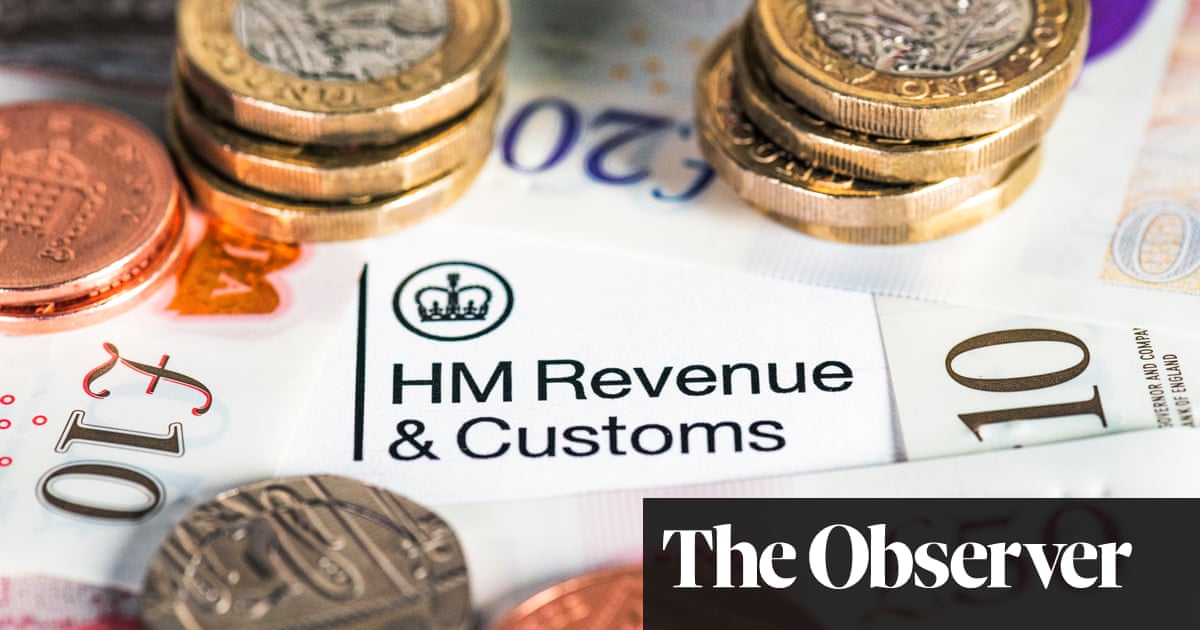The UK’s tax authority has not fined a single “enabler” of offshore tax evasion or noncompliance in five years, despite landmark powers to impose huge fines.
Tory ministers claimed new laws introduced in 2017 allowed HM Revenue and Customs (HMRC) to pursue accountants, lawyers and bankers who facilitate offshore tax evasion would “create a level playing field”, with potential fines of several millions of pounds.
New figures disclosed under freedom of information laws to the Bureau of Investigative Journalism reveal no one has been fined in the last five years under the powers.
“New HMRC powers are pointless if the powers aren’t then used,” said Dan Neidle, founder of the independent thinktank Tax Policy Associates and former head of tax at global law firm Clifford Chance.
Tax evasion and avoidance are key factors in the forthcoming election. Both major parties say they hope to raise billions of pounds from clamping down, relying on the cash raised to pay for manifesto pledges.
Tory ministers say they would use £1bn to help fund the party’s proposed national service scheme, while Labour would use it to cut NHS waiting lists and introduce free primary school breakfast clubs.
The UK “tax gap” – the difference between tax paid and owed – now stands at £36bn for the year 2021-22, the most recent figure available. Labour has accused the Tories of weakening “the deterrent effect of prosecutions and penalties”.
HMRC defines an enabler as “any person who knowingly helps their client to avoid or evade tax”. Targeting them, and not just the taxpayer, became a key pillar of HMRC’s strategy.
The offshore enabler penalty was introduced in 2017, alongside a range of new powers to make it easier to punish perpetrators. The penalty could include a £3,000 fine or 100% of the amount of tax that was dodged, whichever was larger.
HM Treasury boasted at the time that the UK was one of the first countries in the world to introduce this power. It said: “While tax evasion has always been illegal, this law will mean HMRC can, for the first time, charge civil penalties on the facilitators of the tax evasion who provide planning, advice or other professional services or physically move funds offshore.”
Michelle Sloane, a tax disputes partner at law firm Reynolds Porter Chamberlain, said: “Enablers were and still are a big focus for HMRC. But these figures show their rhetoric on tackling enablers … is clearly not being followed through with action.”
In its annual report last year, HMRC said it had raised an additional £34bn through tackling tax avoidance, evasion and other noncompliance. The service has been criticised for failing to properly deploy new laws to crack down on tax avoidance.
The Observer has reported how HMRC has failed to charge a single company under new laws passed to crack down on corporate tax evasion. Figures published last year also revealed the number of HMRC investigations that result in prosecutions had fallen by two-thirds in since 2018.
after newsletter promotion
Stephen Daly, a tax academic at King’s College London, called the lack of any penalties for offshore enablers “bizarre”. He said: “Why would the government want to introduce such a power only to leave it sitting idly by?”
The findings compound pressure on HMRC after revelations that the authority does not know how much is lost to offshore tax dodging each year. HMRC estimates that it collects 95% of all the tax owed in the UK.
Figures HMRC disclosed to Tax Policy Associates in 2021 revealed that UK taxpayers held £850bn in foreign accounts in 2019, of which £570bn was in tax havens.
However, HMRC said in a freedom of information response to the thinktank that it had not “produced or received any estimates” on how much is being lost to unlawful offshore schemes.
In June 2022, Lucy Frazer, then financial secretary to the Treasury, said HMRC would produce data on the “offshore tax gap” in 2023, but it has still not been published.
An HMRC spokesperson said: “We have a strong track record in tackling offshore noncompliance. Since the launch of our ‘no safe havens’ strategy in 2019, we have secured almost £700m from offshore initiatives.”







